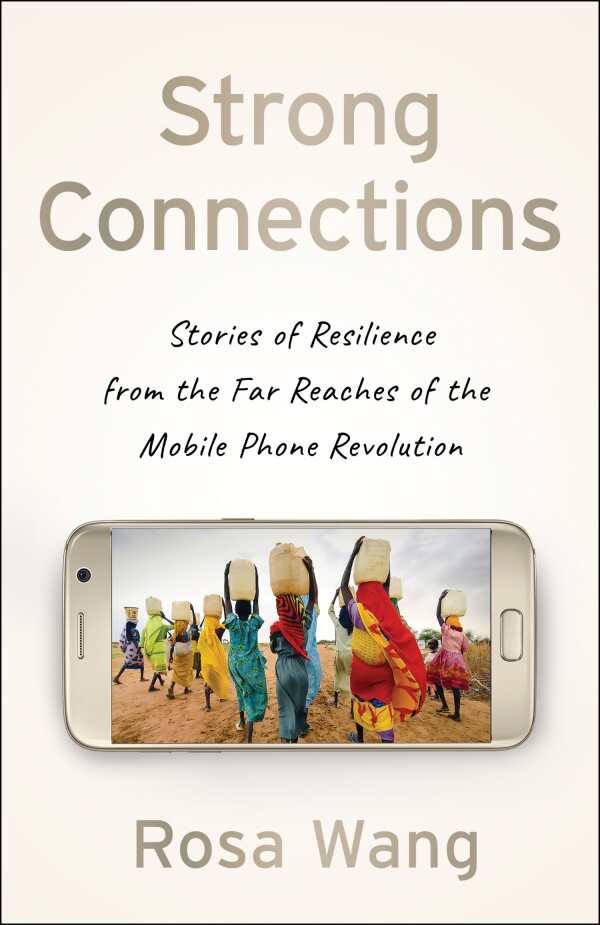Strong Connections
Stories of Resilience from the Far Reaches of the Mobile Phone Revolution
Drawing on global work experiences, the memoir Strong Connections makes a convincing case for empowering women worldwide.
Impoverished women whose lives have been changed by the mobile phone revolution are at the center of Rosa Wang’s social science-minded memoir Strong Connections.
Wang, who in her working life has led efforts to bring cellular phone technology and digital financial services to poor and often illiterate women around the globe, makes note of the many technological, social, and cultural barriers that exist for women in the contemporary world. Her concerns reflect her own experiences in navigating a field that’s dominated by men, too.
To do her work, Wang traveled through rural areas in Africa and Asia, some of which were without electricity or running water. She witnessed how the exponential growth of cellular phone use opened up financial and empowerment possibilities for people in those places—particularly for women and their children. Indeed, the book imparts a sense that data streaming, access to email, and the ability to upload files can be revolutionary in certain circumstances.
Facts and statistics are used to support the book’s notions, as are lively descriptions of the people whom Wang encountered, and of the places that she visited. For example, she records the discomfort of taking muddy roads under the blazing sun, and expresses gratitude for the kindness of those whom she met in her target villages. The book leans on recalled conversations to convey some information, but also indulges in memories of humorous cultural gaffes. Wang’s experiences take over in sections related to the discomfort of travelling all day without access to bathrooms—discomfort that was amplified for her, as the sole woman on her team.
A multitude of ups and downs are remembered as the text traverses subjects including technology, feminism, and time on the road; so, too, are there moves between striking emotional descriptions of personal experiences, and acute reflections on the effects of patriarchy on women on the whole. At one moment, the text recalls ““sweltering, humid air” and a ride reduced to “a bone-jiggling crawl”; in another, it concentrates on how women’s self-esteem is impacted when they are excluded from niceties in meetings attended mostly by men. Surprising bits of trivia arise in the course of this varied work, including that more people in India own mobile phones than they do toothbrushes or bicycles; or that there are more mobile phones in Uganda than there are light bulbs. These amplify larger cultural considerations, as of the ways in which women are impeded from accessing technology.
In the end, this is a book whose many gathered stories are used to bolster its underlying case for instituting small social changes with the potential to effect major shifts. While its central concern is access to cellular phones, it builds on that simple proposed adjustment to comment on how woman’s lives might be transformed for the better.
Drawing on travel experiences around the world, Strong Connections is a memoir that makes a convincing case for empowering women worldwide.
Reviewed by
Kristine Morris
Disclosure: This article is not an endorsement, but a review. The publisher of this book provided free copies of the book and paid a small fee to have their book reviewed by a professional reviewer. Foreword Reviews and Clarion Reviews make no guarantee that the publisher will receive a positive review. Foreword Magazine, Inc. is disclosing this in accordance with the Federal Trade Commission’s 16 CFR, Part 255.

